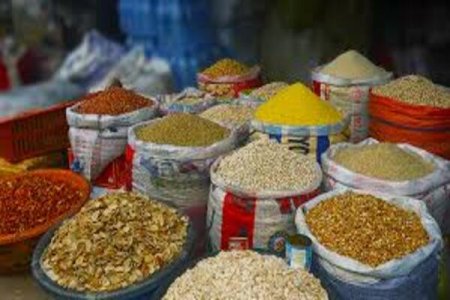
The National Bureau of Statistics (NBS) reports a significant rise in food prices for October 2024, with beans, rice, eggs, and bread seeing year-on-year increases of over 100%. The price of local rice, beans, and beef rose drastically, with government interventions aimed at curbing inflation and improving food security.
The National Bureau of Statistics (NBS) has reported significant increases in food prices for October 2024, highlighting sharp rises in items like beans, rice, eggs, bread, and beef. According to the NBS's Selected Food Prices Watch report, the price of 1 kg of brown beans skyrocketed by 254.23%, rising from ₦790.01 in October 2023 to ₦2,798.50 in October 2024. The increase was also observed on a month-on-month basis, with a 2.19% rise from ₦2,738.59 in September 2024.
Egg prices also saw a substantial year-on-year increase, with 12 medium-sized eggs rising by 140.21%, from ₦1,112.22 in October 2023 to ₦2,671.60 in October 2024. Similarly, sliced bread prices surged by 103.76%, moving from ₦760.82 to ₦1,550.24.
The report also noted that the cost of local rice jumped by 137.32%, from ₦819.42 to ₦1,944.64 per kg, while boneless beef saw a rise of 98.73%, increasing from ₦2,948.03 to ₦5,858.58 per kg.
Regional variations were also highlighted, with Bauchi recording the highest average price for brown beans at ₦3,750.00 per kg, while Yobe had the lowest at ₦1,749.52. For medium-sized eggs, Niger had the highest price at ₦3,450.00, and Adamawa had the lowest at ₦2,050.00.
To curb rising food prices, the Nigerian government introduced a 150-day duty-free import window for specific food items, starting in July 2024. Experts, however, argue that addressing underlying issues like insecurity, transportation, and foreign exchange is necessary for long-term stability in food prices.




![Today's Naira Rate[26-11-2024]: Naira Hits N1752 Against the Dollar in Black Market](/data/attachments/210/210694-876ea261d3417375131fa527c657f455.jpg?hash=PERHMQHP25)
